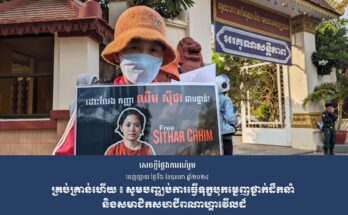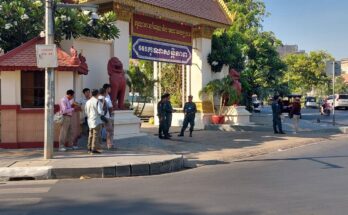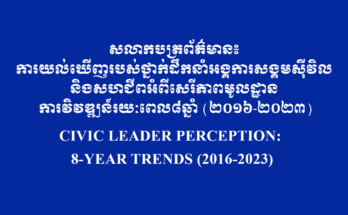Joint Statement
CSOs request the Court and the Royal Government of Cambodia to release all Prisoners of Conscience
Phnom Penh, 03 June 2021 – In light of the recent reports of Covid-19 cases within Cambodian prisons, we, the undersigned trade unions and civil society organizations, reiterate our call to the Royal Government of Cambodia (“RGC”) to release all prisoners of conscience detained in the Kingdom.
Prisoners of conscience are persons imprisoned for the peaceful expression of their political, social, religious, or other conscientiously held beliefs, or for their identity. Almost all of the prisoners of conscience imprisoned in Cambodia have faced the same accusations and charges of incitement.
The safety and health of all prisoners, including prisoners of conscience, are the responsibility of the RGC. This responsibility stems not only from its role as the acting authority, but from international norms and standards regulating prison settings, such as the UN Standard Minimum Rules for the Treatment of Prisoners and the UN Standard Minimum Rules for Non-Custodial Measures. In view of the reports of mounting COVID-19 cases within Cambodian prisons, compounded by prison overcrowding, we call on the RGC to release all non-violent prisoners of conscience as a mitigation measure to minimize the risk posed by the spread of the virus.
In modern society, democratic countries that are guided by the rule of law recognize that the crimes of which prisoners of conscience are accused of or have been convicted for should not be considered crimes at all. Rather, these non-violent individuals are regarded as active citizens who contribute to the improvement of their societies. Article 51 of the Cambodian Constitution states that “Cambodian citizens are the masters of their own country”. However, citizens cannot be so if they are unable to participate in society and share their thoughts on political, economic, and social affairs.
At heightened risk of contracting COVID-19, prisoners are subjected to an increased mental and physical toll. Beyond being denied their most basic freedoms, they face further hardship due to COVID-19 restrictive measures that are challenging to follow in compliance with the Ministry of Health guidelines, such as maintaining hygiene under poor detention conditions and social distancing in overcrowded prisons.
The release of these prisoners of conscience would promote the fundamental rights embodied by the Cambodian Constitution and international instruments, reduce the social cost of COVID-19, contribute to the happiness of their families and wider society, reduce social and political tensions, and encourage them to continue their valuable work for the common benefit of Cambodian society, ultimately bringing betterment for the Cambodian people.
This joint statement is endorsed by the following organizations:
- Cambodian Human Rights and Development Association (ADHOC)
- Affiliated Network for Social Accountability (ANSA)
- Cambodian Alliance of Trade Unions (CATU)
- Coalition of Cambodian Farmers Community Association (CCFC)
- Cambodian Center for Human Rights (CCHR)
- Chandigarh Commission for Protection of Child Rights (CCPCR)
- Center for Alliance of Labor and Human Rights (CENTRAL)
- Cambodian Food and Service Workers’ Federation (CFSWF)
- Cambodian Human Rights Action Coalition (CHRAC)
- CambodianInstitute for Democracy (CID)
- Coalition for Integrity and Social Accountability (CISA)
- Committee for Free and Fair Elections in Cambodia (COMFREL)
- Cambodian Tourism Workers Union Federation (CTWUF)
- Independent Democracy of Informal Economy Association (IDEA)
- Labour Right Supported Union Khmer Employee of Nagaworld (LRSU)
- People Center for Development and Peace (PDP)
- Rural Cambodia Technological Support Organisation (RCTSO)
- Sahmakum Teang Tnaut (STT)
- Vigilance Cambodia
- Youth Resources Development Program (YRDP)



